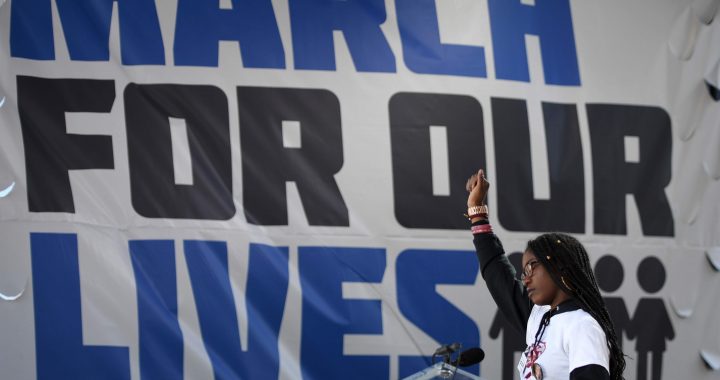
Sergeant Chuck Luther
The best way to chemically create symptoms of “personality disorder” is to prescribe antidepressant medications!!!
PERSONALITY DISORDER DISCHARGES: IMPACT ON VETERANS’ BENEFITS
Wednesday, September 15, 2010
U. S. House of Representatives,
Committee on Veterans’ Affairs,
Washington, DC.
Sergeant Chuck Luther is a disturbing example of how the Army applies a personality disorder discharge. Luther was manning a guard tower in the Sunni triangle north of Baghdad when a mortar blast tossed him to the ground, slamming his head against the concrete, leaving him with migraine headaches so severe that vision would shut down in one eye. The other, he said, felt like someone was stabbing him in the eye with a knife. When Luther sought medical care, doctors at Camp Taji told him that his blindness was caused by preexisting personality disorder.
Luther had served a dozen years, passing eight screenings and winning 22 honors for his performance. When he rejected that diagnosis, Luther’s doctors ordered him confined to a closet. The sergeant was held in that closet for over a month, monitored around the clock by armed guards who enforced sleep deprivation—keeping the lights on all night, blasting heavy metal music at him all through the night. When the sergeant tried to escape, he was pinned down, injected with sleeping medication, and dragged back to the closet. Finally, after over a month, Luther was willing to sign anything—and he did, signing his name to a personality disorder discharge.
The sergeant was then whisked back to Fort Hood, where he learned the disturbing consequences of a PD discharge—no disability pay for the rest of his life, no long-term medical care, and he would now have to pay back a large chunk of his signing bonus. Luther was given a bill for $1,500 and told that if he did not pay it, the Army would garnish his wages and start assessing interest.
Since 2001, the military has pressed 22,600 soldiers into signing these personality disorder documents at a savings to the military of over $12.5 billion in disability and medical benefits. The sergeant’s story was part 3 in my series on personality disorder. In part 2, I interviewed military doctors who talked about the pressure on them to purposely misdiagnose wounded soldiers. One told a story of a soldier that came back with a chunk missing from his leg. His superiors pressed him to diagnose that as personality disorder.
In 2008, after several Congressmen expressed outrage at these discharges, President Bush signed a law requiring the Pentagon to study PD discharges. Five months later, the Pentagon delivered its report. Its conclusion: Not a single soldier had been wrongly diagnosed and not a single soldier had been wrongly discharged. During this 5-month review, Pentagon officials interviewed no one, not even the soldiers whose cases they were reviewing.
Three years ago, during a hearing on personality disorder discharges, military officials sat in these seats and vowed to this Committee to fix this problem. Three years later, nothing has happened.
[The prepared statement of Mr. Kors appears in the Appendix.]
The CHAIRMAN. Thank you, Mr. Kors.
Sergeant Luther, thank you for being here. Thank you for your service. I know it is not easy to talk about your personal situation, but we do appreciate it.
STATEMENT OF SERGEANT CHUCK LUTHER
Video testimony: https://www.youtube.com/watch?v=kZd322Wyix8#t=30
Sergeant LUTHER. Mr. Chairman, Committee Members, and guests, thank you for the opportunity to speak and help my fellow soldiers and veterans by telling my story. I am here today to say that wearing the uniform for the U.S. Army is what defined me. I was, and still am, very proud of the service I gave to my country.
I entered the service on active-duty training status in February of 1988. I served 5 months on active-duty training status and then went on to 8 years of honorable Reserve service. I had a break in service and reentered the Reserves in 2003, and after serving 8 months honorably, I enlisted into the active-duty Army in October of 2004. I was stationed at Fort Hood, Texas. I served as an administrative specialist for 3 years and was given several awards for my leadership and service. I then went to retrain to become a 19D cavalry scout. Upon finishing school at Fort Knox, Kentucky, I returned to Fort Hood and was assigned to Comanche Troop, 1-7 CAV, 1st Brigade, and 1st Cavalry Division. I held the rank of Specialist ER when we left for Taji, Iraq, for a 15-month deployment.
We arrived in Iraq in November of 2006. We found ourselves in a very violent area at the beginning of the surge. On December 16, 2006, I was working in the company radio area monitoring the group that we had outside the forward operating base on an escort mission. I remember that day very clearly. The call came in from one of our staff sergeants in that patrol that they had been attacked and one of our vehicles have been destroyed and we had three killed and one wounded. As we were receiving the information, we could hear the small arms fire in the background as they tried to recover the dead and wounded soldiers.
I served as the training room noncommissioned officer, so I was asked to translate the combat numbers given over the radio to my commander and first sergeant for identity. As the information came over, I realized the truck that had been destroyed contained one of my close friend, Staff Sergeant David Staats, and one of the soldiers that I had taken under my wing, PFC Joseph Baines. I focused on the mission at hand and that evening, drove the first sergeant and the platoon sergeant of these soldiers to the mortuary affairs and helped unload their bodies from the vehicles bringing them home. I pushed through and the next morning we got word, as we were preparing to head to Baghdad to see the wounded soldier, that he also passed away. For the next 2 months, we lost several other soldiers from our squadron and two Iraqi interpreters.
On February 16, 2007, I was a member of the convoy that drove out four boats and members of our troop to conduct a river recon/mosque monitoring mission. After an uneventful drive out, unload boats, troops, and the soldiers, we headed back to Forward Operating Base (FOB) Taji. As we pulled back on the FOB, the call came over the radio that the unit of soldiers had been ambushed on the river mission. We had to quickly head to the drop-off location to assist. Upon arriving, we received small arms and large-scale fire from the enemy. We found one of our staff sergeants lying in the middle of the beach bleeding from both legs. One of the lieutenants had been shot in the arm and two Iraqi police officers had been killed.
We quickly put together two boats of troops and ammo to retrieve our soldiers. After heading up river, we received fire on our boat and the boat had capsized and we were stranded on an island for approximately 14 hours before being picked up. We have had limited ammunition and no radio communications. We all thought we were going to die that day.
Fourteen days to the day after that event, I was sent home for R&R leave. I was very angry, had severe headaches, was depressed and would cry at times. I have fought with my wife and family while I was at home. I had an episode where I broke my hand punching walls. After not being able to cope, I welcomed the trip back to Iraq. Upon returning to Iraq, I was promoted to sergeant and received my combat action badge for my part in the river mission firefights.
After returning from R&R leave, several people in my unit said that something had changed in me. I tried to pull it together, but I had trouble sleeping, had anger problems, severe headaches, nose bleeds, and chronic chest pain. I was living at the combat post x-ray. While there, I went to see the medics to get my inhaler for asthma refilled. I was sent back to the forward operating base, and upon returning to the aid station, the squadron aid station doctor was not present. I was told he was busy preparing for his triathlon he would be competing in after our deployment. I came back the next day and was seen.
I asked to see the chaplain because I was feeling very depressed and needed to talk. After talking to the chaplain, I was sent to the quarters for 2 days and then I was allowed to go back to the combat outpost. Around the first of April, I was in guard tower 1 alpha when a mortar landed between the tower and the wall around the outpost. When it exploded, it threw me down and I hit my right shoulder and head. I had severe ringing in my right ear with clear fluid coming from it and had problems seeing out of my right eye. After a few minutes, I went to the medics on the outpost and was given ibuprofen and water and sent back to duty. I started to have worse headaches and could not sleep.
They sent me back to the forward operating base and I was seen by the aid station by doctors and medics and then sent to the mental health center. I spoke with the lieutenant there who was a licensed clinical social worker. He had a 15-minute talk with me and gave me Celexia and Ambien. I was sent back to my quarters. The next 2 days, I began to get angry and hostile due to the medications, and I was sent back to the lieutenant colonel. He informed me that if I did not stop acting like this, that they were going to chapter me out under a 5-13, personality disorder discharge. I tried and went back to the aid station.
After several days on suicide watch for making the comment that if I had to live like this, I would rather be dead, I asked to be sent somewhere where I could get help and be able to understand what was wrong with me. I was told I could not go and demanded I be taken to the inspector general of the forward operating base. I was told by Captain Dewees that I was not going anywhere, and he called for all the medics, roughly six to ten. I was assaulted, held down, and had my pants ripped from my left thigh and given an injection of something that put me to sleep. When I awoke, I was strapped down to a combat litter and had a black eye and cuts on my wrists from the zip ties.
I eventually was untied and from that point forward for 5 weeks, I was held in a room that was 6 feet by 8 feet that had bed pans, old blankets and other old supplies. I had to sleep on a combat litter and had a wool blanket.
I was under guard 24/7, and on several occasions was told I was not allowed to use the phone or the Internet. I had slept through chow and asked to be taken to the chow hall or post exchange to get some food due to my medications. I was told no and given a fuel-soaked MRE to eat. I was constantly called a piece of crap, a faker, and other derogatory things. They kept the lights on and played all sorts of music from rap to heavy metal all night. The medics worked in shift, therefore, they didn’t sleep. They rotated. These are some of the tactics that we would use on insurgents that we captured to break them to get information or confessions.
I went through this for 4 weeks and the HHC (headquarters and headquarters company) commander told me to sign this discharge, and if I didn’t, they would keep me there for 6 more months and then kick me out when we got back to Fort Hood anyway. I said I didn’t have a personality disorder, and he told me if I signed the paperwork that I would get back home and get help and have all my benefits.
After the endless nights of sleep deprivation, harassment, and abuse, I finally signed just to get out of there. I was broken. It took 2 more weeks before I was flown out and brought to Fort Hood. Upon returning, I was told by the rear detachment acting first sergeant and commander to stay out of trouble and they would get me out of there. I was sent out to wait on my wife in the rain with two duffel bags and another carry bag. This was my welcome home from war.
I went home and I went to sleep, only to be awakened by three sergeants at my door saying I had to go back to the mental health due to me being suicidal and they had not had me checked out yet. I went to the R&R center at Fort Hood, Texas, and was seen by a lieutenant colonel who was a psychologist. He asked me why I was brought back from Iraq. I explained they said I had a personality disorder, and he disagreed. He shook his head and said that I had severe PTSD and combat exhaustion. He told me to get to sleep and rest and followup in a week with him. I was never allowed to go back to see him.
The ironic thing is that in my military records, I held three Army jobs and had a total of eight mental health screenings that all found me fit for duty. Also, I had never had a negative counseling or a negative incident in my 12 years of Reserve and active-duty career. Two weeks after getting back, I was discharged from the Army. I had my pay held and they took my saved up leave from me for repayment of unearned reenlistment bonus. I received a notice in the mail 3 weeks after my discharge from the Department of Finance that I owed the Army $1,501. Three months later, I went to the VA and I was told they could not see me for the mental health due to my preexisting disorder. I went back the next week and was seen by a psychologist.
After an hour with her, she scheduled me an appointment with a caseworker and then I had several follow-up mental health appointments. I was given my VA rating a year later in 2008 of 70 percent for post-traumatic stress disorder, knee injury, headaches, right shoulder, and asthma. Six months later, after several emergency room visits and neurology appointments, my rating was upgraded to 90 percent and I was given service-connection for traumatic brain injury.
In June of this year, after 2 years from the date that I filed a request with the Military Boards of Correction to have my discharge changed from a chapter 5-13 to a medical retirement, I was denied, even after the 3 years of VA medical documents and evidence from people that know me. I demand my discharge be changed and I receive the proper discharge for my service.
I have since founded Disposable Warriors and I have assisted many veterans and soldiers in a range of issues, from personality disorder diagnosis to soldiers on Active duty with diagnosed post-traumatic stress disorder that are not been treated or being discharged for misconduct other than honorable or bad conduct discharge, which also does not entitled them to VA benefits.
I want to say that it has been hell just to get my mind somewhat back on track and to exist. I have bouts of memory loss, agitation, flashbacks, paranoia, problems sleeping, and depression. I get angry every time I look at my DD-214 with the fraudulent personality disorder discharge. It cost me my contract jobs for private security after my exit from the Army. I had to get a job 3 days after I was kicked out of the Army to feed my wife and three children. I was taught for years in the Army the definition of integrity, honor, respect, and selfless service, all of which I gave to the Army but none was given back to me.
I hold two things very dear to me this day, and it comes from the noncommissioned officers creed: the accomplishment of my mission and the welfare of my soldiers. I am on a new battlefield, with a new mission, and I will, at all cost, take care of soldiers and their families. I love my country, I love my Army, but we cannot stand by and watch this to continue to happen.
At the very same time that this Committee was having Specialist John Town testify in front of them in 2007, I was abused, broken, and discharged for the very same thing this he was testifying about. Please do not let us be here in 3 years again with another story of shame. The lack of care and concern, coupled with the stigma of asking for help that we have allowed to be put on us, has to be totally removed. Then and only then will we see the veterans homelessness rate drop, the active duty in veterans suicide rate drop, and the skyrocketing of divorce decrease. The senior level of the Armed Forces get it. But they can talk about it, design plans for it, and make PowerPoints about it, but if it is not being enforced at the soldiers’ level, it is worthless.
In closing, I would like to state that I do not have, nor have I ever had a personality disorder. I suffer from
post-traumatic stress disorder and traumatic brain injury from my service to my country while at war in Iraq. I raised my right hand on several occasions and swore to protect the Constitution at all cost. I did my part. Now it is time for the military to keep its part of the agreement that if I were injured, they would help me get back on my feet. Please help stop these wrongful discharges and help get our wounded servicemen and women back to service or back to their families. Thank you.
[The prepared statement of Sergeant Luther appears in the Appendix.]
The CHAIRMAN. Thank you both for such compelling testimony.
Mr. Kors, the last figure that both you and I had were from 2002 to 2007, stating that DoD discharged 22,600 veterans. Has that number gone down since we had the first hearing?
Mr. KORS. It was the 22,400. They have added 200 more to the list. But even that is tremendously outdated. That goes to 2007.
The CHAIRMAN. So we don’t know what has happened the last 3 years?
Mr. KORS. We don’t at all. I think the number of families who have been purposely cheated out of benefits is just rising and rising, without stop.
Original article: https://veterans.house.gov/hearing-transcript/personality-disorder-discharges-impact-on-veterans%E2%80%99-benefits
Another more recent article and video: http://www.huffingtonpost.com/news/sergeant-chuck-luther/
Ann Blake Tracy, Executive Director,
International Coalition for Drug Awareness
www.drugawareness.org & http://ssristories.drugawareness.org
Author: ”Prozac: Panacea or Pandora? – Our Serotonin Nightmare – The Complete Truth of the Full Impact of Antidepressants Upon Us & Our World” & Withdrawal CD “Help! I Can’t Get Off My Antidepressant!”
WITHDRAWAL WARNING: In sharing this information about adverse reactions to antidepressants I always recommend that you also give reference to my CD on safe withdrawal, Help! I Can’t Get Off My Antidepressant!, so that we do not have more people dropping off these drugs too quickly – a move which I have warned from the beginning can be even more dangerous than staying on the drugs!
WITHDRAWAL HELP: You can find the hour and a half long CD on safe and effective withdrawal helps here: http://store.drugawareness.org/ And if you need additional consultations with Ann Blake-Tracy, you can book one at www.drugawareness.org or sign up for one of the memberships for the International Coalition for Drug Awareness which includes free consultations as one of the benefits of that particular membership plan.




